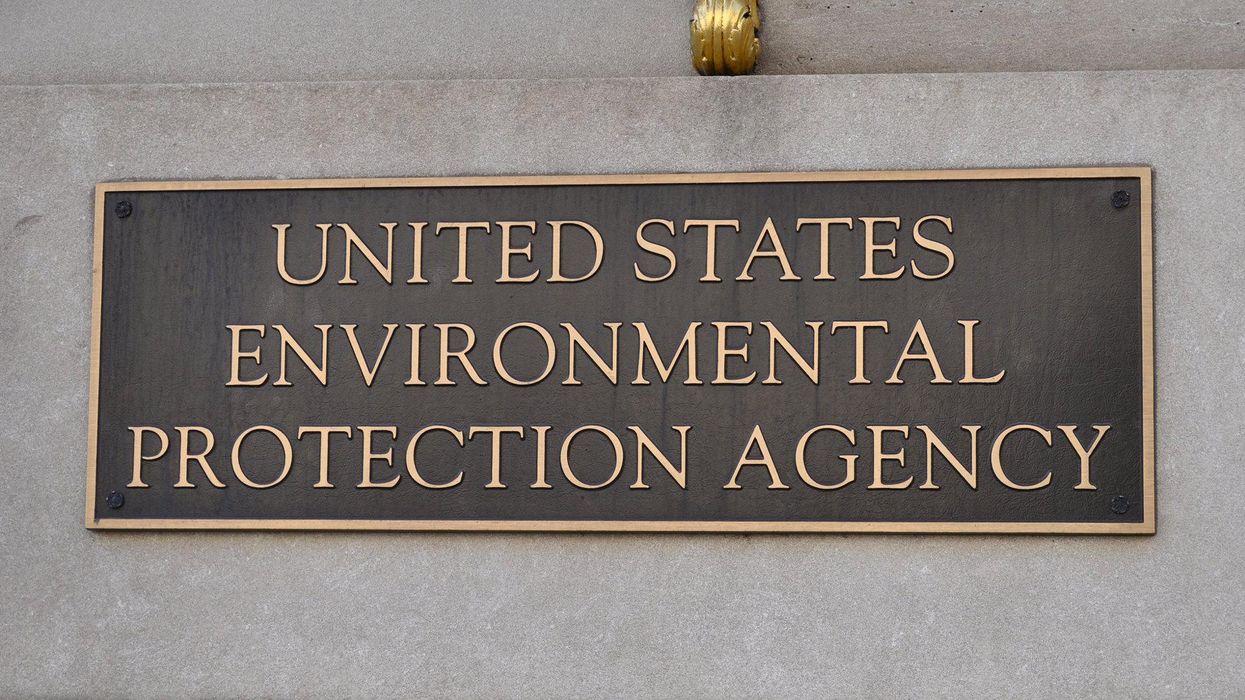
Insiders at the Environmental Protection Agency (EPA) have alleged dozens of violations of the agency’s “scientific integrity” policy over the last few years, including complaints of political interference and tampering with chemical risk assessments, but nearly all the complaints have been ignored, according to an analysis conducted by a nonprofit group representing EPA employees.
Since 2017 there have been 68 allegations of scientific integrity violations inside the EPA, including 35 allegations filed between 2019 and mid-year 2021, according to Public Employees for Environmental Responsibility (PEER). Seven complaints were filed between January and July of this year, according to EPA data obtained by PEER, which released the new report.
PEER is currently representing four EPA scientists who have come forward as whistleblowers, offering internal agency emails and other documents as evidence of what they allege is widespread corruption driven by powerful political and corporate influences.
Among other things, those whistleblowers have claimed specifically that chemical risk assessments have been altered, or otherwise tampered with, in order to make chemicals entering the marketplace appear safer than they actually are. The result leaves the public exposed to chemicals that may cause cancer, developmental problems, or other hidden health risks.
Importantly, the whistleblowers have said that agency misconduct has continued through the first several months of the Biden administration.
The information obtained by PEER shows that of the 35 allegations filed from 2019 through June 2021, 12 were closed, 22 remained unresolved, and only one was deemed “substantiated,” but even that one has not led to any punishment.
“It’s a complete sham,” Jeff Ruch, a PEER regional director and former executive director, said of the EPA’s scientific integrity program. “They give the illusion that they have a program, but it’s worse than nothing because it suggests they’re holding themselves to a high standard of scientific integrity when they’re not.”
Interference in science
The EPA has publicly reported scientific integrity complaint information through 2018, but has not filed public reports for complaint information since. The data for 2019 through June of 2021 was procured by PEER through a Freedom of Information Act request. The nonprofit requested details about the complaints and their handling but EPA provided only very limited information illustrated in pie charts.

The information in the pie charts shows that “interference” in scientific work ranked as the most often-cited type of complaint. Five of the seven complaints recorded for the first half of 2021 were for interference, for instance.
Shortly after taking office, President Biden launched a review of federal scientific integrity policies, saying “scientific findings should never be distorted or influenced by political considerations.”
The directive said “Improper political interference in the work of federal scientists… undermines the welfare of the nation, contributes to systemic inequities and injustices, and violates the trust that the public places in government to best serve its collective interests.”
In one example of such interference, PEER filed a complaint last year with the EPA’s Office of Inspector General charging that then EPA Administrator Andrew Wheeler, along with other high-ranking EPA officials, excluded key scientific information and the analysis of experts in changing the definition of “water of the United States” under the Clean Water Act, a move PEER and others said threatened clean drinking water around the country.
PEER describes what it calls “major” hindrances within the EPA’s Scientific Integrity program, including a “lack of investigative staff,” an “inability to draw upon expertise needed to assess technical issues,” and the “absence of any protocol for reviewing or investigating complaints.”
And notably, violations of the agency’s scientific integrity policy carry no penalties, PEER said. The group’s experience representing whistleblowers indicates violations are largely addressed by trying to “persuade non-compliant managers to address their own violations,” PEER said.
The group said with respect to the current whistleblower complaints PEER is involved in, the EPA scientists notified the agency’s office of scientific integrity last November about their concerns about a memorandum that made policy changes they scientists said weakened human health assessments in a way that made them less likely to find risks with a new chemical substance. Their concerns were ignored for months, according to PEER. The memorandum was eventually revoked, but the altered chemical assessments were not corrected and the scientists fear the policy memo will be reinstituted, according to PEER.
In the EPA’s 2018 report, the agency said that “Scientific integrity remains an ongoing priority for EPA,” and said the agency works with special advisors and committees and engages the Office of Inspector General (OIG) when needed to protect and advance the integrity of the agency’s scientific work.
“Scientific integrity is the compass that guides EPA in its mission to protect human health and the environment,” the agency states in the report.

